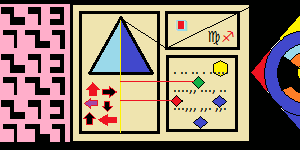The Washington Post
The lawyers who pushed Trump’s falsehoods may soon be done lawyering
Norman Eisen, Joanna Lydgate
In the aftermath of the attempted insurrection at the U.S. Capitol on Jan. 6, the country is grappling with how to hold accountable those who promoted the Big Lie that helped trigger the violence: that the 2020 presidential election was stolen. When President Donald Trump and his enablers began bringing that Big Lie to court, some experts warned that these lawyers may never face disciplinary proceedings. But Monday’s disbarment complaint against Sidney Powell and three additional attorneys for alleged misconduct in Michigan, as well as ethics complaints elsewhere against Rudolph W. Giuliani and others, are important steps in that direction.
On Monday night, Michigan Attorney General Dana Nessel (D) joined Gov. Gretchen Whitmer (D) and Secretary of State Jocelyn Benson (D) — all three themselves licensed lawyers — in seeking to disbar “the Kraken” Powell and her colleagues for “violat[ing] their oath and the ethical rules to which they are bound.”
As the former ethics chief in the Obama administration and a former state deputy attorney general, we applaud the Michigan leaders for bringing this case, which rests on alleged violations of three ethics rules.
Lawyers have a duty not to file frivolous litigation. The three constitutional officers in Michigan argue that the bizarre claims Powell advanced about election theft meet that standard. These included nonsensical assertions somehow involving Hugo Chávez, the Venezuelan dictator who died almost eight years ago. Initial filings also included allegations of fraud in “Edison County,” a county that does not exist in the Great Lakes State. No wonder a Michigan federal court said that the lawsuit was “less about achieving the relief Plaintiffs seek — as much of that relief is beyond the power of this Court — and more about the impact of their allegations on [the] People’s faith in the democratic process and their trust in our government.”
You don’t have a ‘right’ to a lawyer when you’re trying to steal an election
Lawyers also have a duty of candor to the court, and Nessel and her colleagues allege that Powell’s filings here were packed with falsehoods. Powell claimed that an anonymous affiant named “Spyder” to be a military intelligence analyst, when, according to news reports, in fact he “never completed the entry-level training course” and “kept washing out of courses” in his military intelligence training. Other Powell filings had allegedly false statements about turnout rates, denial of observer access to vote counting, purported mishandling of ballots and much more.
Finally, lawyers are ethically required to avoid dishonesty, fraud, deceit or misrepresentation. The filings here were riddled with them, according to the disbarment complaint.
The disbarment proceedings come amid a wave of similar actions in Michigan. Nessel filed an earlier motion for sanctions against Powell and others. The city of Detroit has also filed a motion for Rule 11 sanctions against seven lawyers involved in the “Kraken” lawsuits, and asked the court to refer the attorneys — including Powell and Lin Wood — for disciplinary action. Michigan is not alone in seeking accountability: In Arizona, seven lawyers jointly filed an ethics complaint against 21 attorneys (including Powell) who went to court on behalf of Trump, the Arizona Republican Party or others. The eight-page letter alleges that the attorneys knowingly brought 10 “utterly meritless cases” against election officials.
Significant developments in accountability also occurred Monday against another infamous member of Trump’s legal team: Giuliani. The ethics complaint against him filed with the New York State Bar, which requests an investigation of his fitness to practice law and a suspension of his law license, was supplemented with new complainants and information. Now endorsed by more than 7,500 people, including 14 former federal judges, the supplement points out that Giuliani has continued to add to what was already an “overwhelming public record of Mr. Giuliani’s lies and the grave consequences for Americans and American democracy,” raising serious issues under the state’s rules of professional conduct.
In the immediate aftermath of the 2020 election, some ethics experts warned not to hold out hope for ethics actions against Trump attorneys. One scholar noted, for example, that bar counsels “are highly resistant to charging any lawyer pressing a political agenda for a willing client, inside or outside of court.” That was in November. Now, dozens of frivolous lawsuits and one insurrection later, the landscape has significantly changed.
These initial efforts undertaken by the states represent a gathering storm. In other moments of alleged misconduct in which lawyers have been implicated — Watergate comes to mind — the result has been disbarment, a fate suffered by president Richard Nixon’s former attorney general John Mitchell and others involved in that scandal.
Although the full scope of accountability here is not yet clear, a movement is swelling to see the lawyers who perpetrated the Big Lie — and therefore bear a measure of moral responsibility for the violence that eventually resulted — brought to justice. This is just the beginning.

